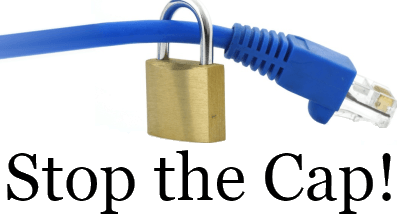Stop the Cap Meaning: Understanding the Phrase
In today's digital age, new phrases and expressions emerge, often with unique meanings that may not be immediately clear to everyone. One such phrase is "stop the cap." In this article, we will explore the meaning of "stop the cap" and its origins. Let's dive in!

"stop the cap" - relate to the Internet
I. Exploring the Meaning:
1. Definition: "Stop the cap" is an idiomatic expression commonly used in online communities and social media platforms. It is often used to call out or challenge someone's exaggerated or dishonest claims or statements. The phrase essentially means to stop spreading false information or to stop lying.
2. Origin: The origin of the phrase "stop the cap" can be traced back to African American Vernacular English (AAVE) and the slang term "cap," which means to lie or exaggerate. Over time, it has gained popularity beyond its original community and has become a widely recognized phrase used to question the credibility of someone's statements.
II. Usage and Examples:
The phrase "stop the cap" is commonly used in various online platforms and social media interactions. It serves as a way to question or challenge the authenticity of someone's claims or statements. Here are a few examples to illustrate its usage:
1. Example 1:
User A: "I can bench press 500 pounds easily!"
User B: "Stop the cap! That's hard to believe without any proof."
2. Example 2:
User A: "I aced my exam even though I didn't study."
User B: "Stop the cap! It's unlikely to achieve such results without any preparation."
3. Example 3:
User A: "I have a million followers on Instagram."
User B: "Stop the cap! Let's see some evidence to back up that claim."
4. Example 4:
User A: "I never get tired, I can stay awake for days."
User B: "Stop the cap! Everyone needs rest and sleep, it's not humanly possible."
5. Example 5:
User A: "I've traveled to every country in the world."
User B: "Stop the cap! That's an incredible feat if it's true, but it's highly unlikely."
In these examples, User B uses the phrase "stop the cap" to express skepticism or doubt about the claims made by User A. It serves as a way to challenge the credibility of the statement and encourages the person to provide evidence or rethink their exaggerated assertion.
"Stop the cap" is an effective way to call out false information or exaggerated statements in online conversations. It helps promote honesty and encourages meaningful and genuine discussions.
III. Alternatives and Similar Expressions:
While "stop the cap" is a popular phrase, there are similar expressions that convey a similar meaning. Here are a few alternatives:
1. "No cap": This phrase is widely used and has a similar meaning to "stop the cap." It is often used to indicate that someone is being honest or telling the truth.
Example: "I'm telling you the truth, no cap!"
2. "Cut the cap": This expression is another way to challenge someone's claims or statements and implies that they should stop exaggerating or fabricating information.
Example: "Cut the cap and tell us what really happened."
3. "Quit capping": This phrase is commonly used to call out someone for exaggerating or lying and suggests that they should stop the dishonesty.
Example: "Quit capping and be real with us."
4. "Enough with the cap": This expression conveys a sense of frustration with someone's false claims or exaggerations and urges them to stop.
Example: "Enough with the cap, just tell us the truth."
5. "Don't front": This phrase is used to discourage someone from pretending or acting in a way that is not genuine or truthful.
Example: "Don't front, we know the truth."
These alternative expressions and similar phrases can be used interchangeably with "stop the cap" to challenge the authenticity of someone's claims or statements. They add variety to your language and help create engaging and authentic conversations online.
It's important to note that these expressions are informal and are typically used in casual conversations or social media interactions.

"Stop the cap" is phrase popularity in online communities
"Stop the cap" is a phrase that has gained popularity in online communities and social media platforms. Its meaning revolves around challenging exaggerated or dishonest claims. Understanding its origins and usage can help you navigate online discussions and discern between genuine and exaggerated statements.
Remember, next time you come across someone making exaggerated claims, don't hesitate to say, "Stop the cap!"